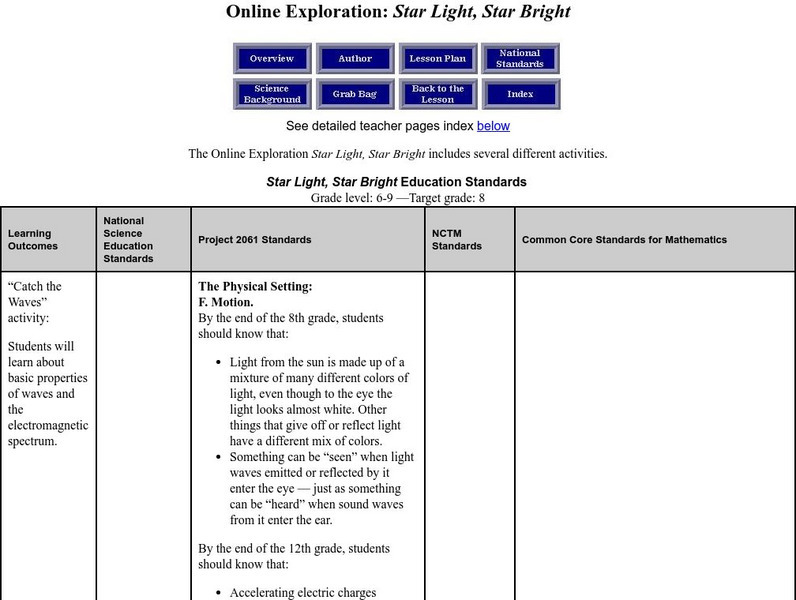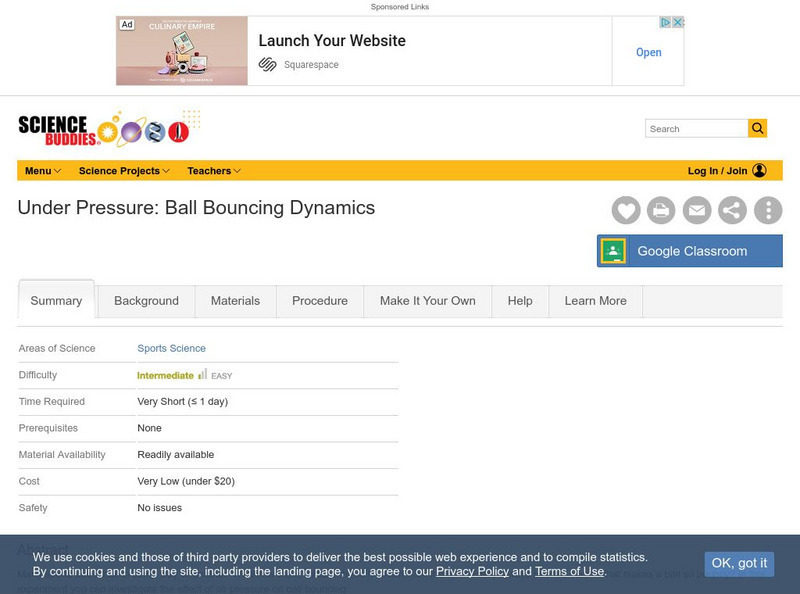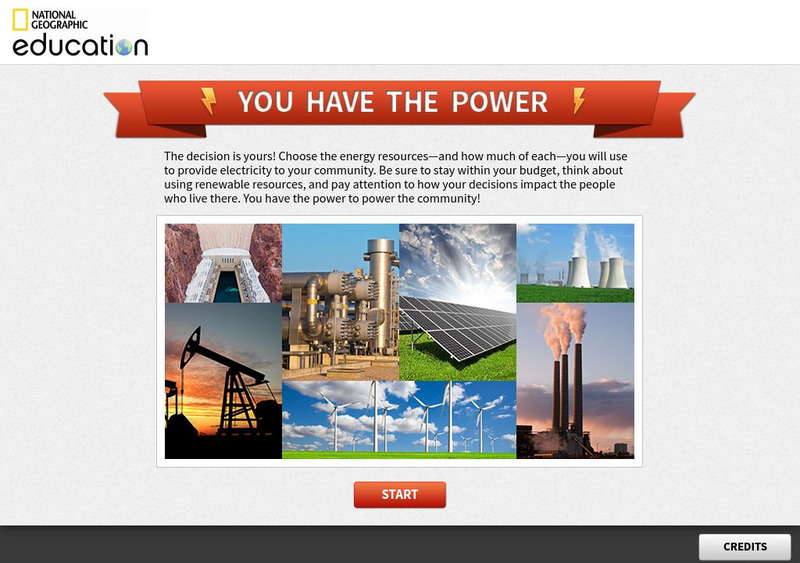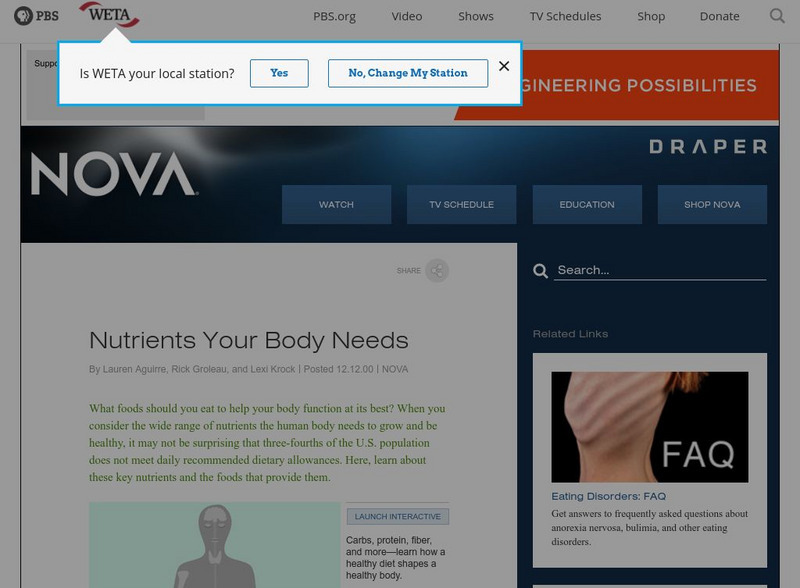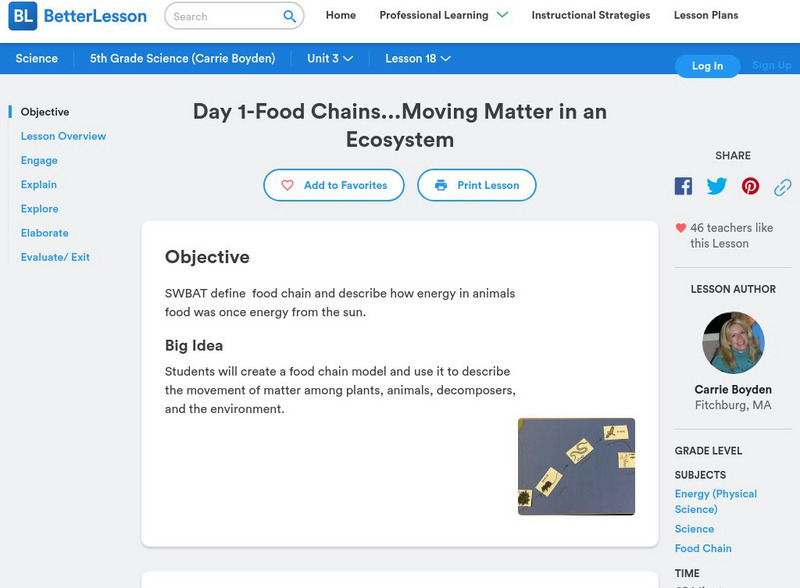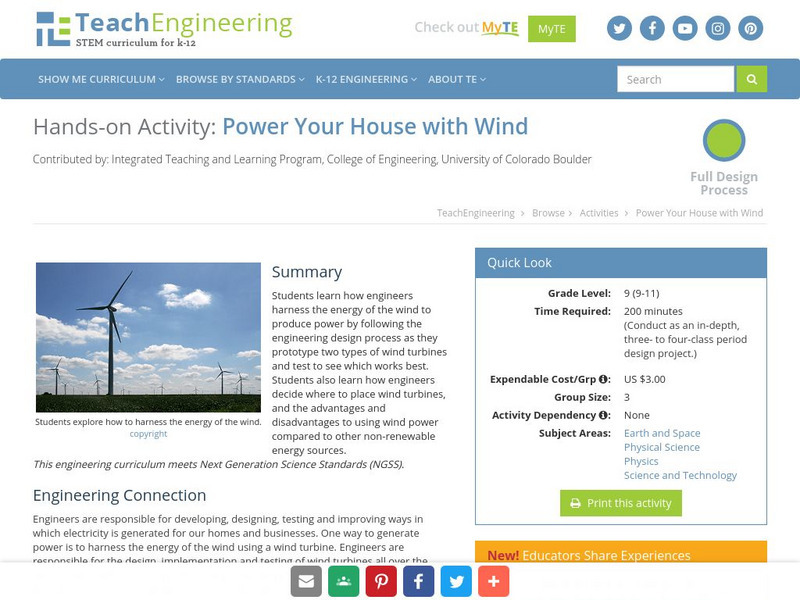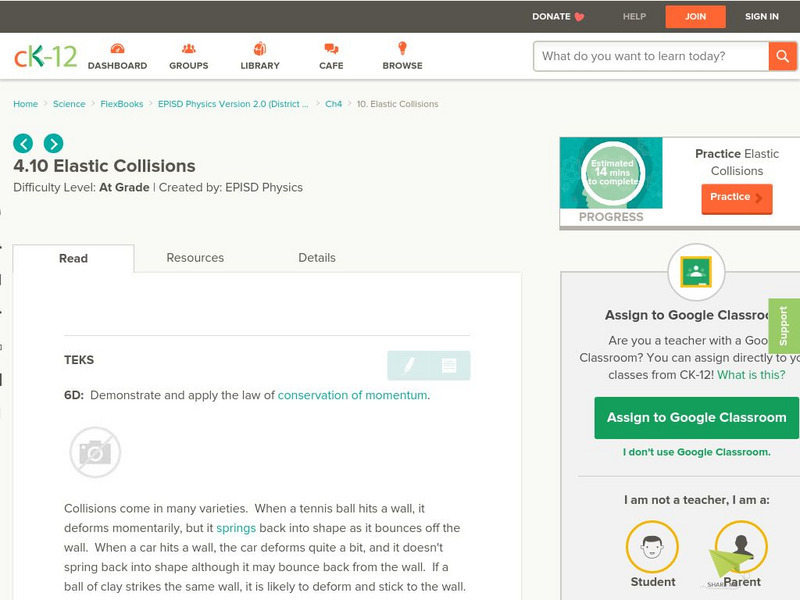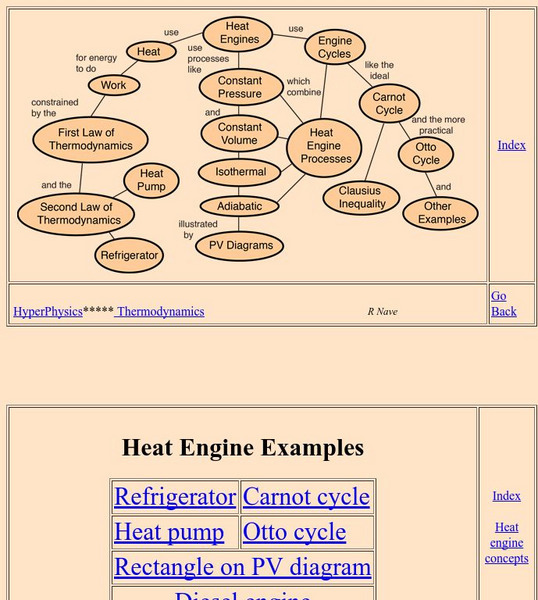Curated OER
It's All In The Surface: The Effects Of Color & Texture On The Ability Of A Surface To Absorb Solar Energy
Ninth graders examine how dark surfaces absorb more light than light surfaces. They perform an experiment that compares various surfaces abilities to absorb heat, then record and analyze the results.
Curated OER
Reflective Solar Cooker
Students build and use a reflective solar cooker to cook marshmallows.
Curated OER
What Stores Solar Energy Best?
Middle schoolers discuss reasons and methods for keeping a home warm in winter and cool in summer as examples of energy storage. Students participate in a solar energy experiment.
Curated OER
Oh Nuts! - Calories Count
Students measure and record the mass of the nut to be tested to the nearest 0.01 gram.
Curated OER
Solar Matters
Students design an energy resource wheel and demonstrate how to use it to access information about renewable and nonrenewable energy sources.
eSchool Today
E School Today: Energy
Explains different kinds of energy, covering kinetic, potential, gravitational, mechanical, sound, thermal, chemical, electrical, and radiant energy. Also looks at storage, transfer, and dissipation of energy. Includes a short...
Space Telescope Science Institute
Amazing Space: Star Light, Star Bright
This online exploration provides an opportunity to identify the different properties of waves and the relationship that exists between energy, wavelength, and frequency. Correlate images from the Hubble Telescope to the wavelength,...
Science Buddies
Science Buddies: Under Pressure: Ball Bouncing Dynamics
Many sports use a ball in some way or another. We throw them, dribble them, hit them, kick them, and they always bounce back. What makes a ball so bouncy? In this experiment you can investigate the effect of air pressure on ball bouncing.
National Geographic
National Geographic: You Have the Power
What factors are important to consider in order to make informed energy decisions? In this interactive, you select one of three locations and the energy resources and then try to provide 100% of that community's electricity needs while...
PBS
Pbs Nova Teachers: Dying to Be Thin: Body Needs
Find out what the human body needs to function at its best, and why.
American Association for the Advancement of Science
Aaas: Project 2061: Energy: Forms, Transformation, Transfer, and Conservation
[Free Registration/Login Required] Create a science test that checks for student understanding in science, for common misconceptions, as well as for correct ideas. This is a list of key ideas related to Energy: Forms, Transformation,...
Better Lesson
Better Lesson: Food Chains Moving Matter in an Ecosystem (Day 1)
Students will create a food chain model and use it to describe the movement of matter among plants, animals, decomposers, and the environment. Resources include a detailed lesson plan, student handouts, pictures of a completed chain,...
TeachEngineering
Teach Engineering: Power Your House With Wind
Students learn how engineers harness the energy of the wind to produce power by following the engineering design process as they prototype two types of wind turbines and test to see which works best. Students also learn how engineers...
TeachEngineering
Teach Engineering: Energy of Motion
By taking a look at the energy of motion all around us, students learn about the types of energy and their characteristics. They first learn about the two simplest forms of mechanical energy: kinetic and potential energy, as illustrated...
US Department of Energy
U.s. Department of Energy: Science Education
Use this resource to learn about how the Department of Energy provides information on science competitions, energy conservation, case studies and more.
CK-12 Foundation
Ck 12: Elastic Collisions
[Free Registration/Login may be required to access all resource tools.] In this online tutorial students are asked to demonstrate and apply the law of conservation of momentum.
Khan Academy
Khan Academy: The Industial Revolution
At one time, humans, fueled by the animals and plants they ate and the wood they burned, or aided by their domesticated animals, provided most of the energy in use. All life operated within the fairly immediate flow of energy from the...
Other
The Happy Scientist: What Is a Food Web?
A food web is a way of seeing how energy is transferred from organism to organism. All living things need energy. They use it to move, to grow, to reproduce. That energy has to come from someplace. Drawing a food web is a great way to...
Science Buddies
Science Buddies: Measure Photosynthesis With Floating Leaves
In this activity, you will be able to observe the oxygen production in leaves by doing a floating leaf disk experiment. You can also find out how quickly plants produce oxygen, and what variables affect photosynthesis.
Georgia State University
Georgia State University: Hyper Physics: Energy Cycle From Plants to Animals
Find out about the essential role energy plays in cell function and in sustaining life. Trace energy transformations as they pass from one living thing to another.
Georgia State University
Georgia State University: Hyper Physics: Heat Engine Concepts
An indexing page for the HyperPhysics site. The page contains a concept map of links to a variety of other pages which discuss concepts related to heat engines. All pages contain informative graphics and excellent explanations.
Pennsylvania State University
Kettering University: The Simple Harmonic Oscillator
The motion of three simple harmonic oscillators is animated to illustrate the effects of mass and spring constant upon the motion. Several equations and a lengthy discussion accompany the animations.
University of California
University of California Los Angeles: Force, Work and Power
Describes the definition and relationships between force, work and power. Includes nice drawings to increase conceptual understanding.
Cynthia J. O'Hora
Mrs. O's House: Energy Saving Survey Take Action
Students will explore ways that people can conserve energy. Beginning with a classroom survey, students research, consider changes that can be made, and evaluate which changes will be easier to do than others and explain why.








